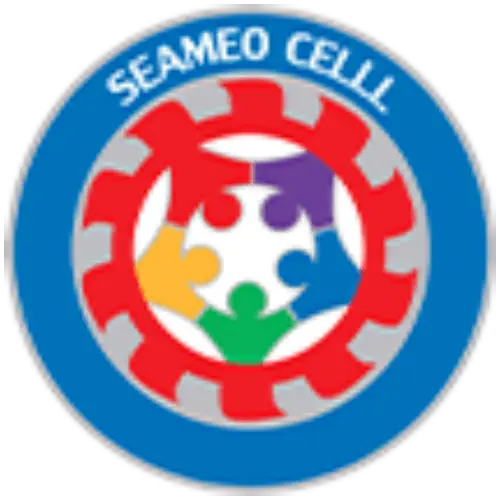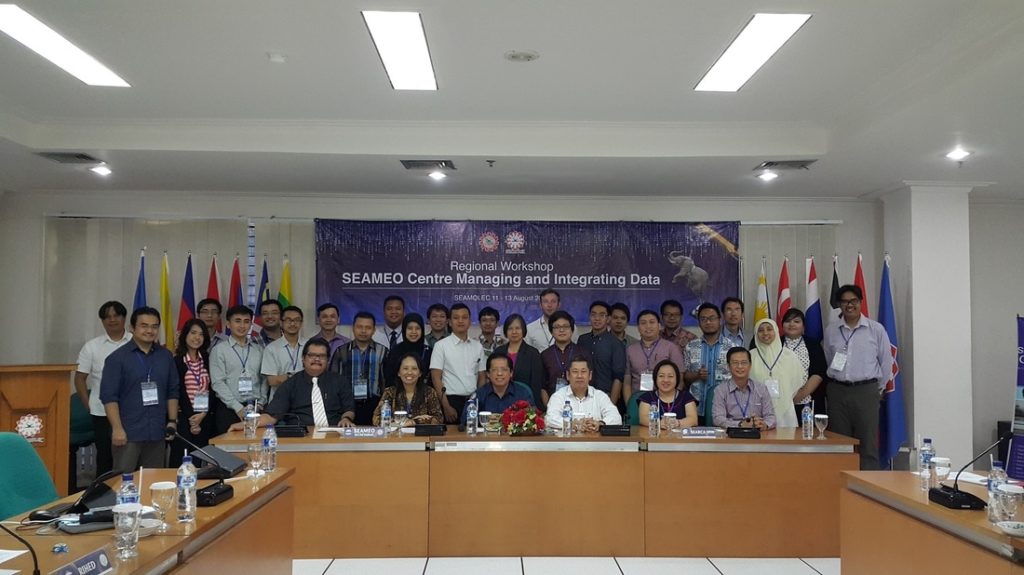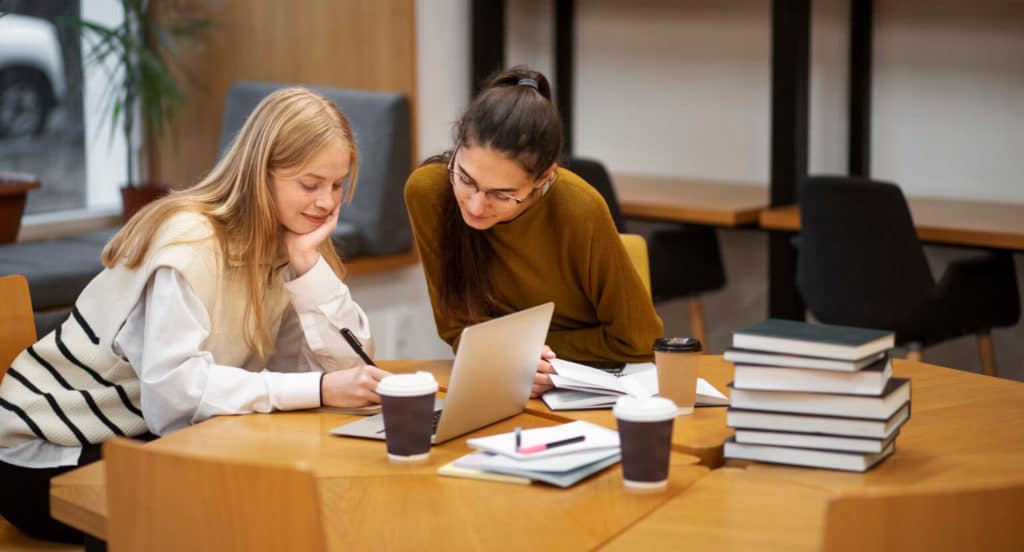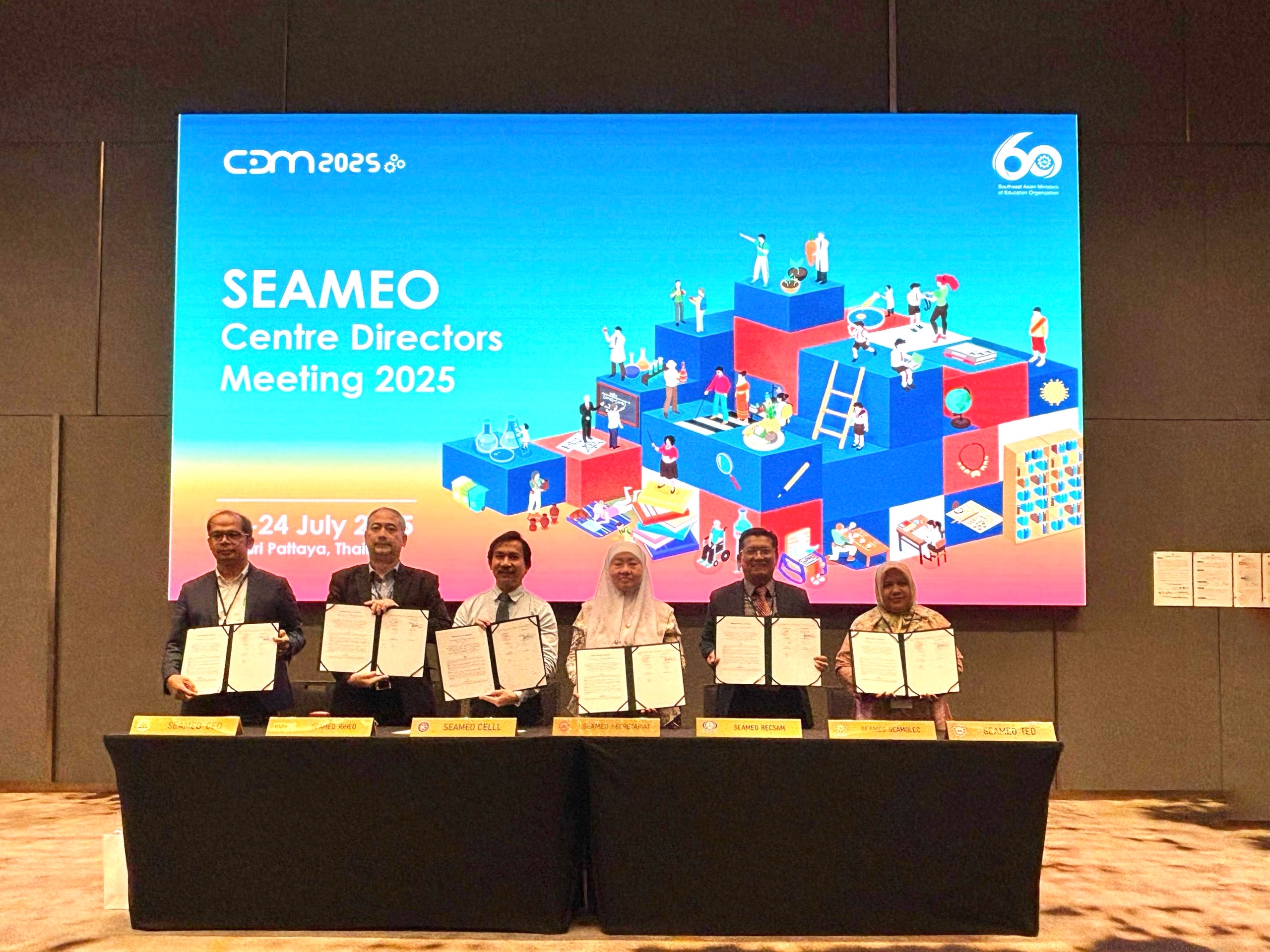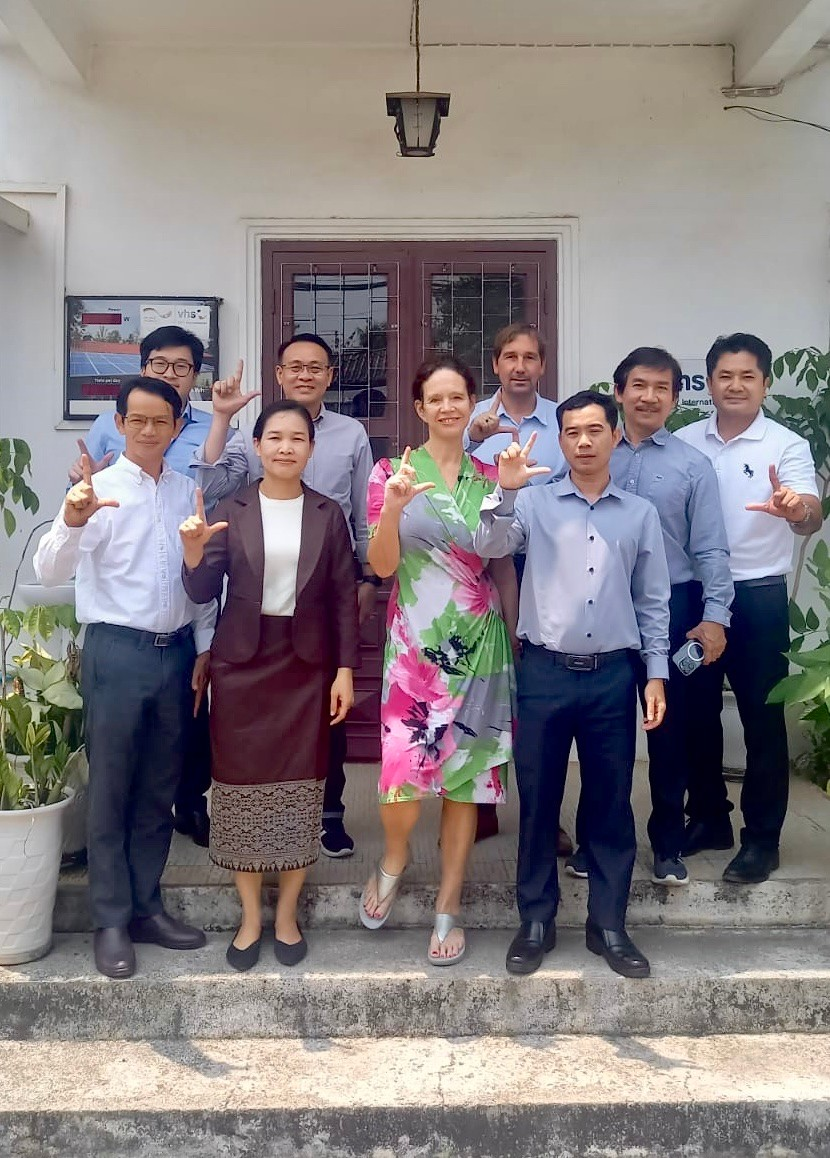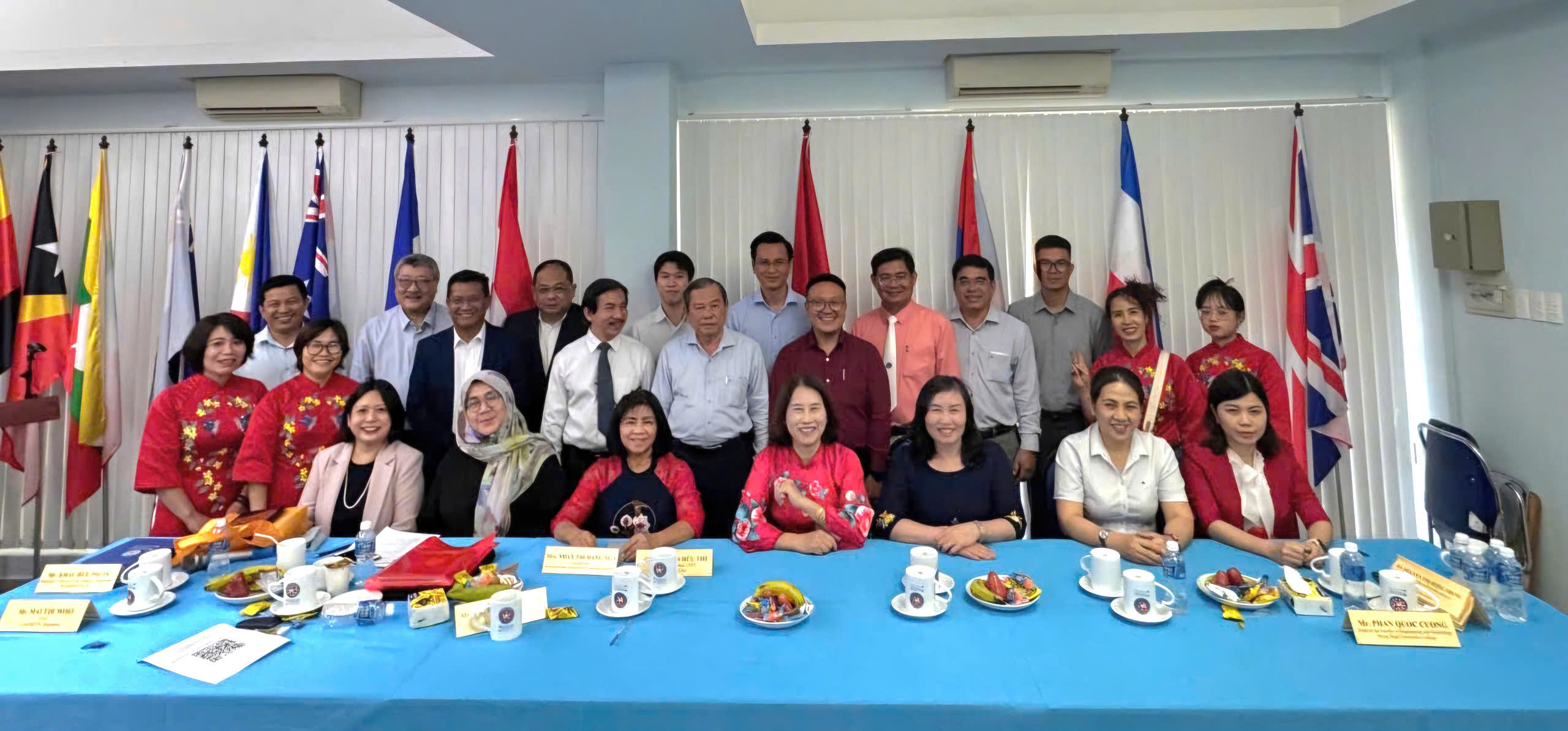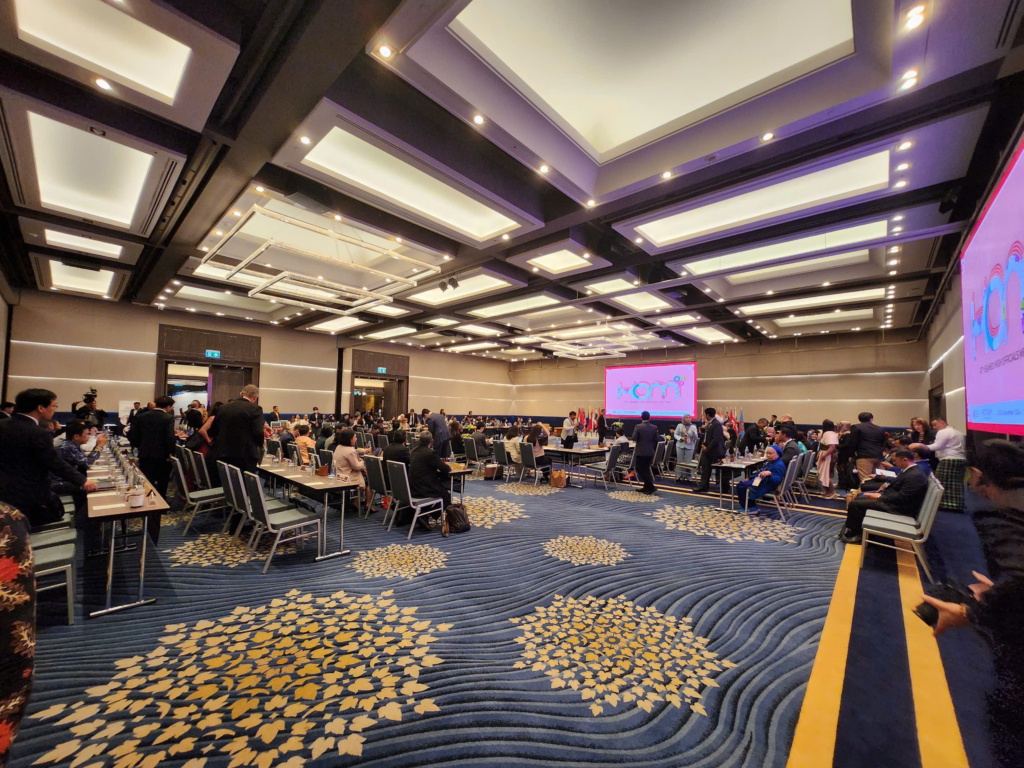
The 47th SEAMEO High Officials Meeting (HOM) took place from 26 to 28 November 2024 at the Royal Orchid Sheraton Hotel & Towers in Bangkok, Thailand. This prestigious gathering brought together education leaders, policymakers, and partners from Southeast Asia and beyond to discuss and advance regional educational initiatives.
Day 1: Foundational Discussions
Key highlights of the first day morning included the Future4Girls’ Inception Report Consultation Meeting on gender equity in education and the 4th SEAMEO Strategic Workshop on Monitoring, Evaluation, and Learning (MEL). These sessions are for SEAMEO Centre representatives, laying the foundation for the plenary discussions in the afternoon and following days.
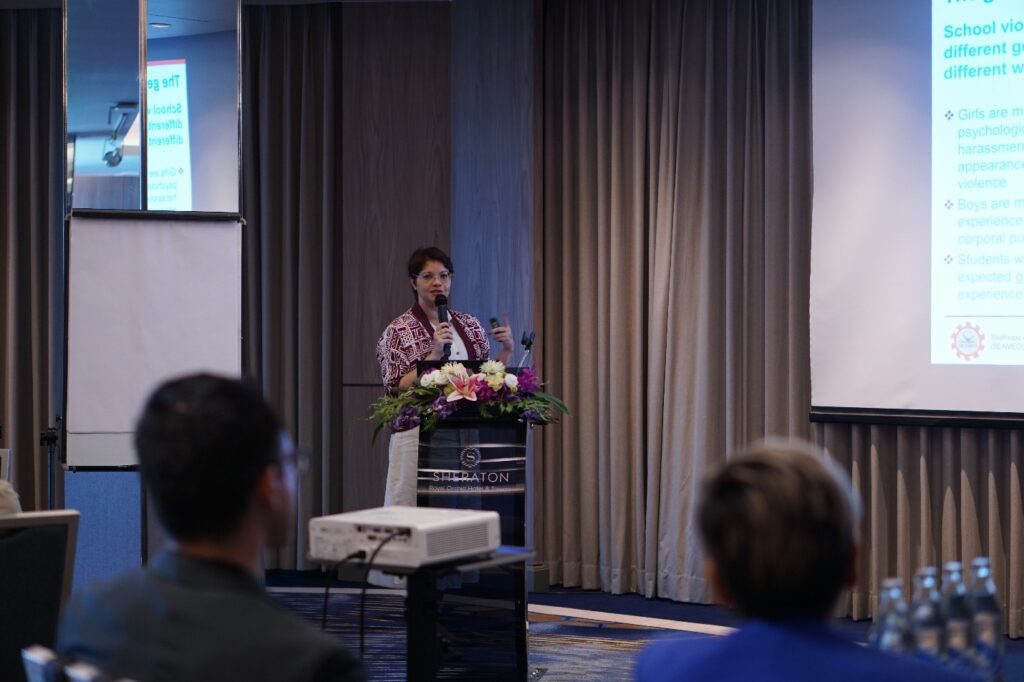
The Future4Girls’ Inception Report Consultation Meeting was a pivotal event focusing on advancing regional gender equity in education through targeted policy and practice improvements. This initiative aims to address gender disparities by enhancing policy frameworks, empowering girls, and fostering inclusive educational practices. At the heart of the project is a comprehensive study mapping gender-related education policies across SEAMEO member countries. This mapping identifies gaps, highlights best practices, and pinpoints areas for reform to promote equality.
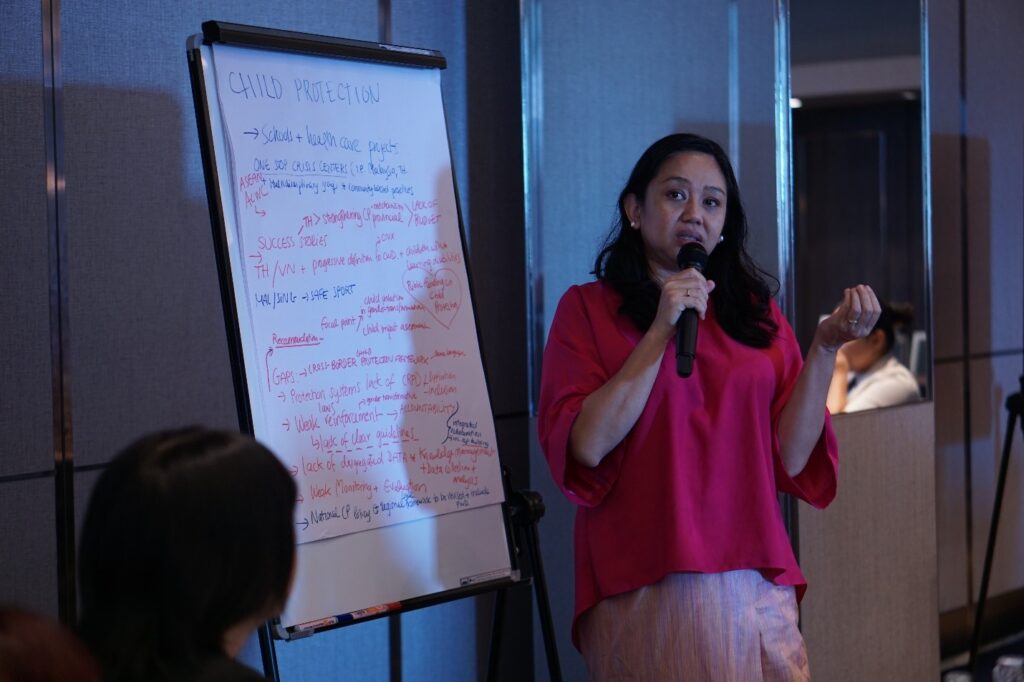
During the meeting, SEAMEO members discussed the initial findings, shared insights, and collaboratively strategised on advancing girls’ education. With a multi-stakeholder approach involving educational ministries, NGOs, and institutions, the initiative addresses critical aspects such as access to quality teaching, safe learning environments, and opportunities in STEM fields.
The anticipated outcomes include policy reforms, curriculum enhancements, and increased advocacy for gender equality, creating a strong foundation for girls to excel academically and secure brighter career opportunities.
Monitoring, Evaluation, and Learning (MEL) in SEAMEO
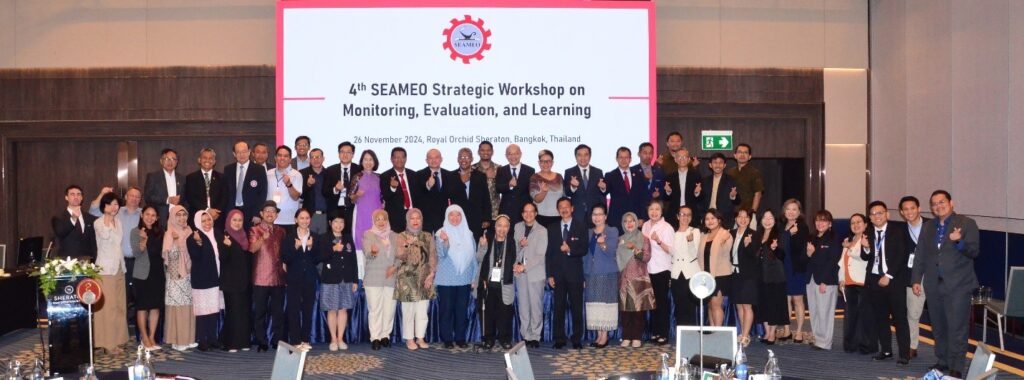
Monitoring focuses on systematically collecting data to track project implementation, ensuring objectives are met and issues are addressed promptly. Evaluation goes further by assessing outcomes and impacts against established goals, using both qualitative and quantitative methods to measure relevance, effectiveness, efficiency, and sustainability. Most importantly, Learning involves using insights from monitoring and evaluation to refine policies and strategies, allowing SEAMEO to adapt its educational programmes in real time to better meet the needs of students and educators.
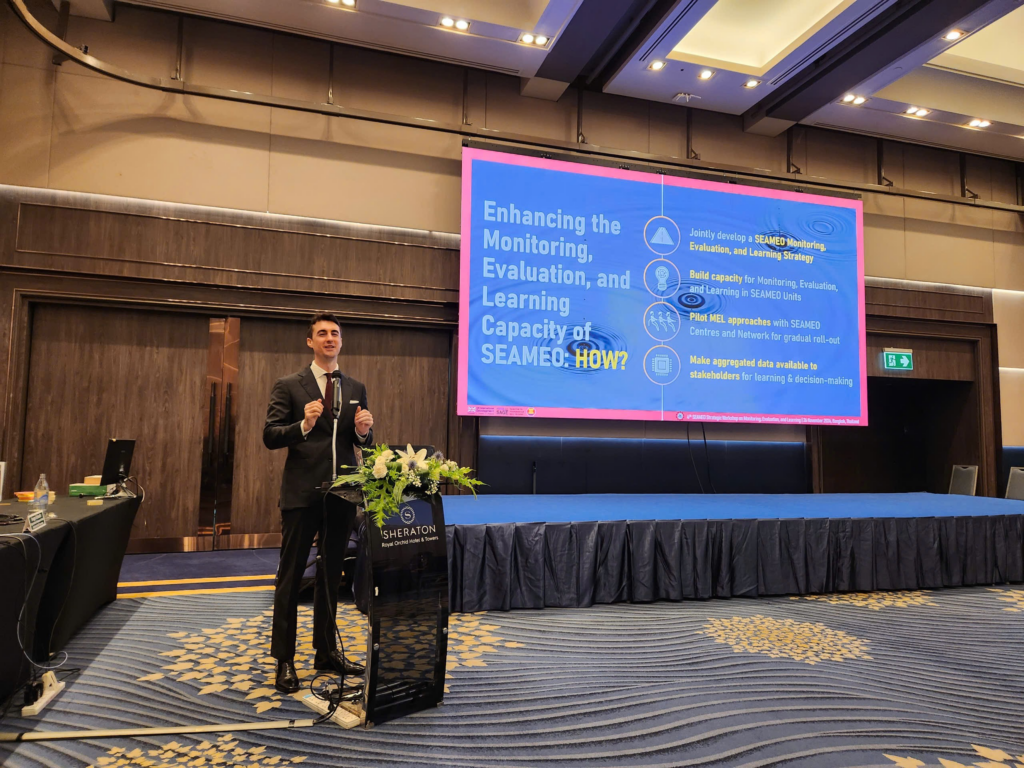
The session explored ways to enhance MEL practices across SEAMEO initiatives, aiming to foster accountability, draw lessons from regional projects, and ensure that programmes are impactful, scalable, and sustainable across member countries.
Afternoon Highlights and Special Sessions
The Parallel sessions in the afternoon included the continuation of the Future4Girls’ Inception Report Consultation Meeting, where representatives from SEAMEO member countries’ Ministries of Education discussed regional policy mapping and its implications for gender and education. At the same time, an In-Camera Session of the 47th SEAMEO HOM provided a confidential platform for SEAMEO High Officials and designated representatives to discuss sensitive and strategic matters. Key topics included governance, resource allocation, strategic planning, and confidential policy adjustments critical to SEAMEO’s future direction. This closed-door session fostered candid dialogue on issues such as funding, personnel, legal and financial matters, and the alignment of regional educational initiatives. SEAMEO CELLL played an active role in advocating for language education policies and ensuring resource support for its programmes. The session underscores the importance of trust and confidentiality in shaping SEAMEO’s strategic decisions and reinforcing unity among its leadership.
Following these sessions, three special events enriched the day:
Special Session 1: “Towards Greater Impact Through Improved Monitoring, Evaluation, and Learning in SEAMEO.” This session focused on improving educational programmes through enhanced MEL practices, highlighting the importance of data-driven decision-making.
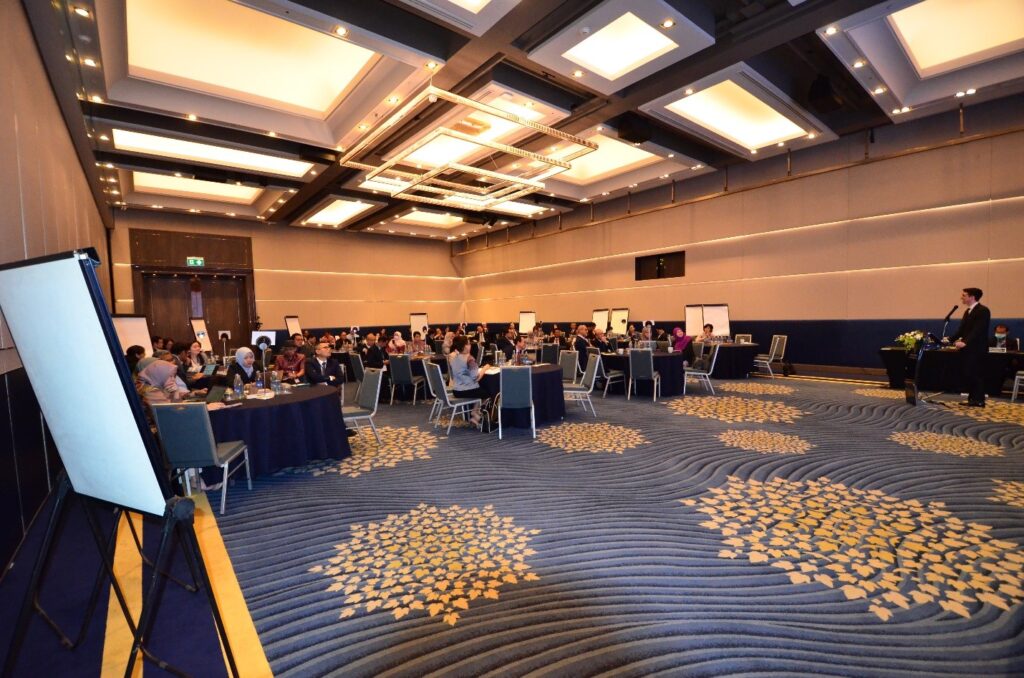
Special Session 2: “SEAMEO Centre Policy Research and Network (CPRN).” Discussions centred on the role of SEAMEO Centres in fostering a network for collaborative policy research and development across Southeast Asia.
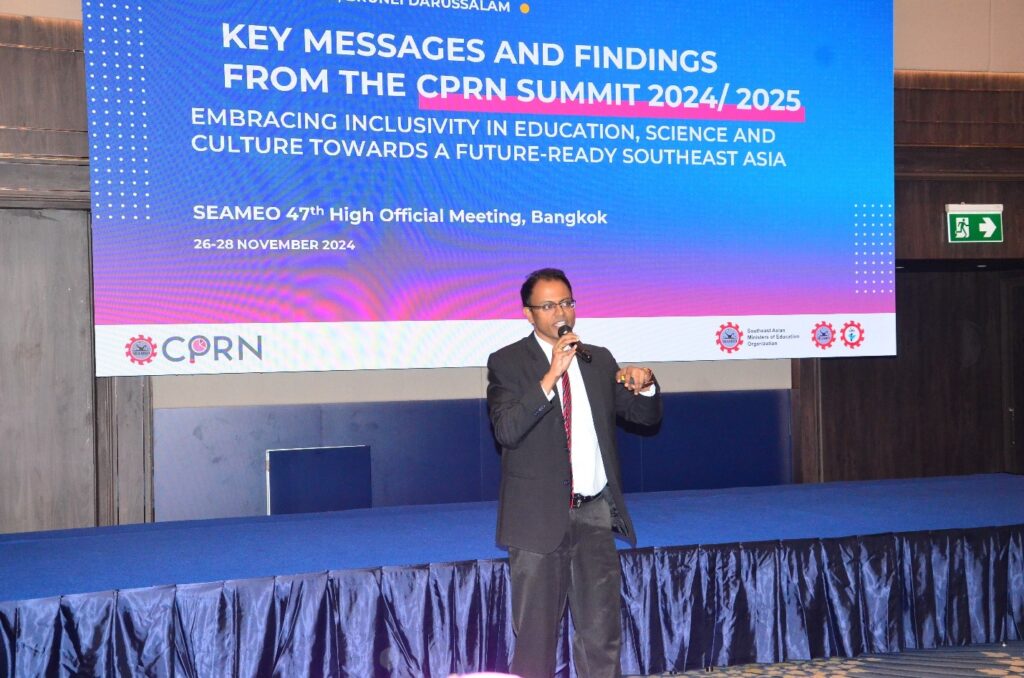
Special Session 3: “AI and Education (TeachAI and MIT).” Experts delved into AI integration in education, exploring innovations in personalised learning, AI-driven analytics, and ethical considerations.
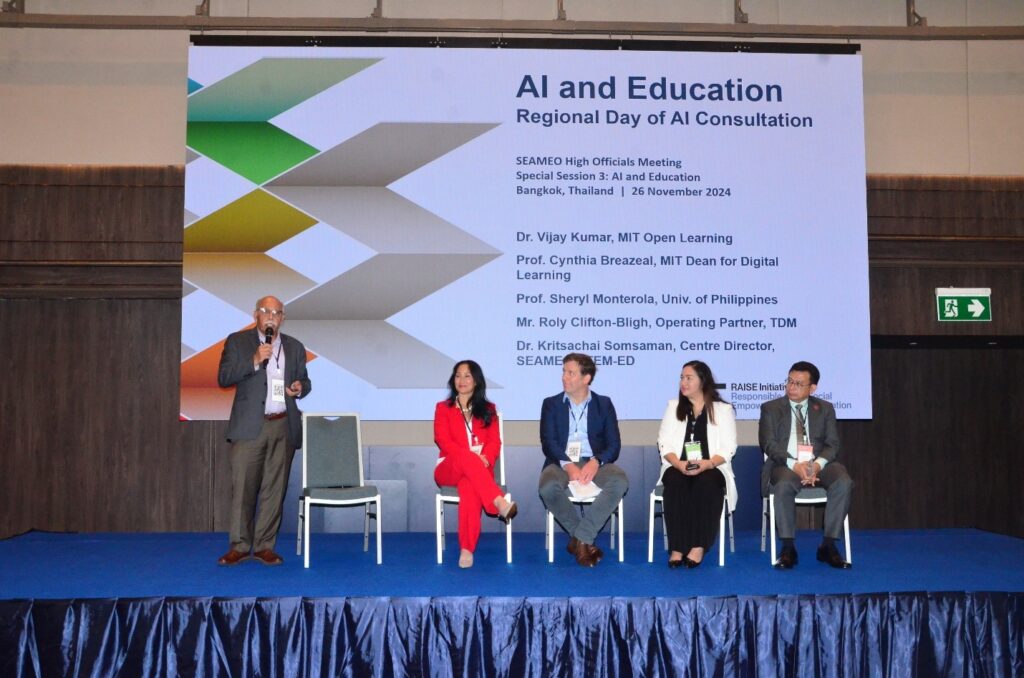
The day concluded with a dinner, offering participants a valuable networking opportunity to exchange ideas and build partnerships.
Day 2: Plenary Sessions and Awards
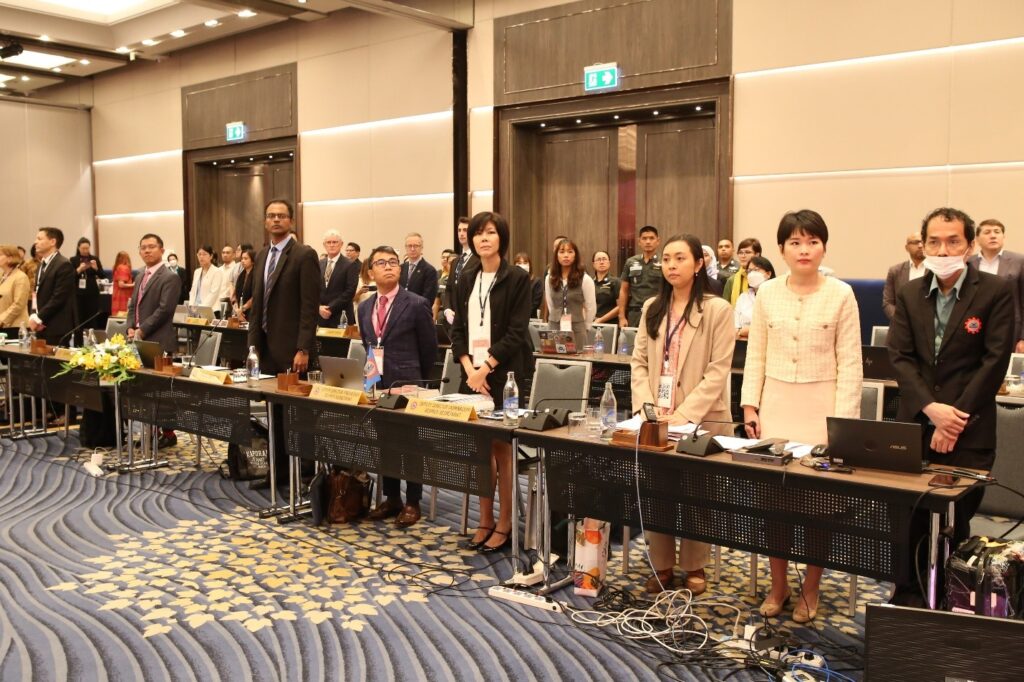
The plenary session on 27 November began with an opening ceremony that included welcome remarks from the SEAMEO Secretariat Director and Thailand’s Minister of Education.
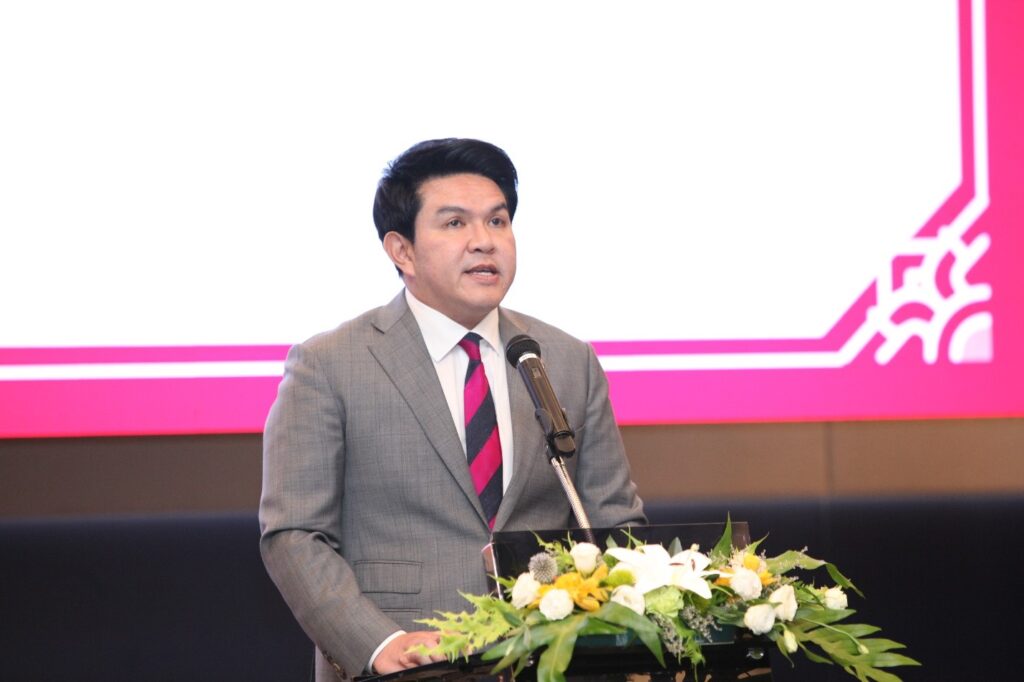
The delegates watched a video showcasing SEAMEO’s integrated accomplishments, followed by an awards ceremony that recognised exceptional contributions to education. Among the awards presented were the SEAMEO-Japan ESD Award and the Ki Hajar Dewantara Award.
SEAMEO-Japan Education for Sustainable Development (ESD) Award:
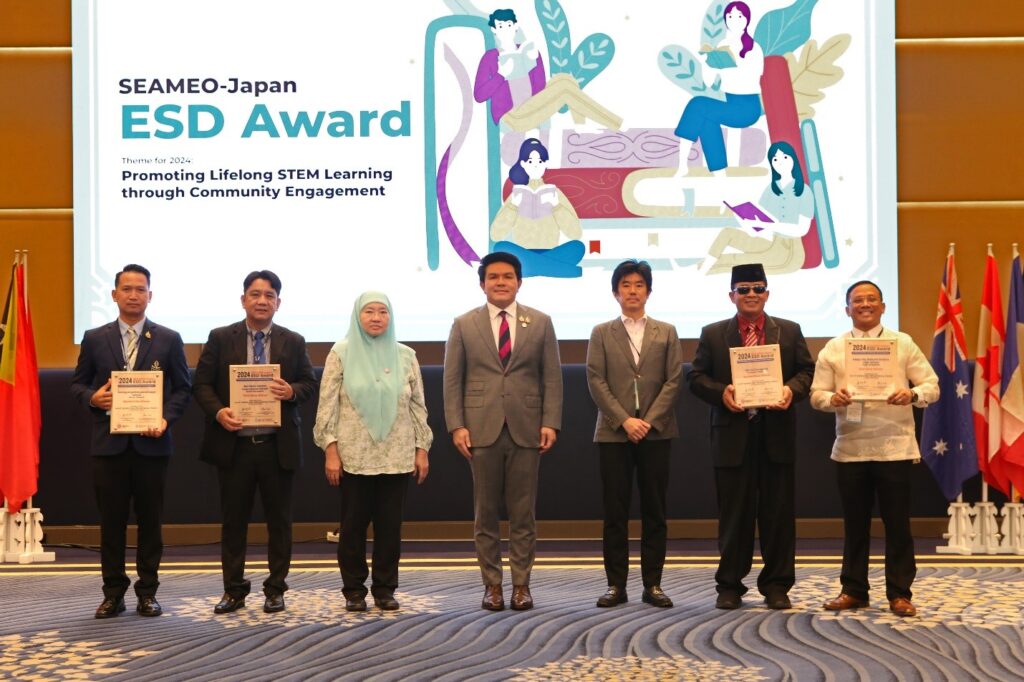
The SEAMEO-Japan ESD Award, a collaboration between SEAMEO, Japan’s Ministry of Education, Culture, Sports, Science and Technology (MEXT), and UNESCO, seeks to advance Education for Sustainable Development in Southeast Asia. Schools from SEAMEO member countries compete annually under themes linked to sustainability, showcasing their innovative approaches to teaching about environmental conservation, community engagement, and the Sustainable Development Goals. Winners are awarded recognition, certificates, and may participate in cultural exchange programs in Japan, fostering both educational and cultural ties.
Ki Hajar Dewantara (KHD) Award: Named after the influential Indonesian educator Ki Hajar Dewantara, the KHD Award, managed by SEAMEO QITEP in Science, celebrates outstanding science educators from Southeast Asia. This award acknowledges teachers who have made significant contributions to science education through innovation and dedication. Nominees submit papers detailing their work, which are then evaluated to determine the awardees. The recipients receive a trophy, a certificate, and a professional development fund, with the aim to not only honor individual achievements but also to encourage the spread of exemplary teaching practices across the region.
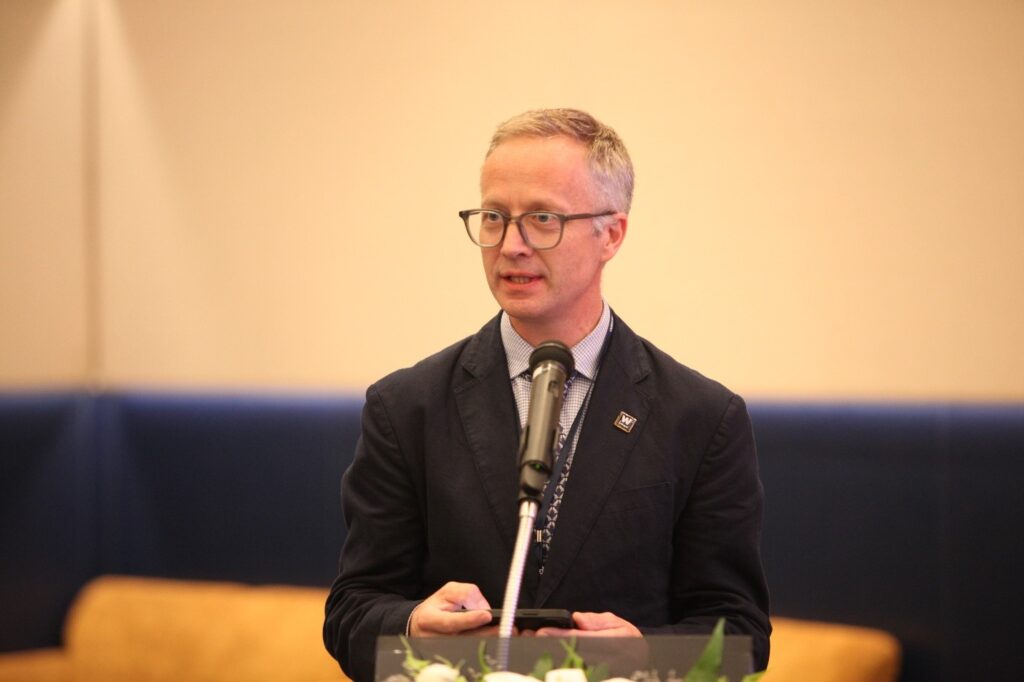
After the formal photo session and a tour of the Friends of SEAMEO Gallery, participants engaged in plenary discussions. Key activities included the election of the session chair, keynote speeches, and insightful panel discussions. The afternoon featured special sessions, addressing strategic MEL advancements and policy research within SEAMEO.
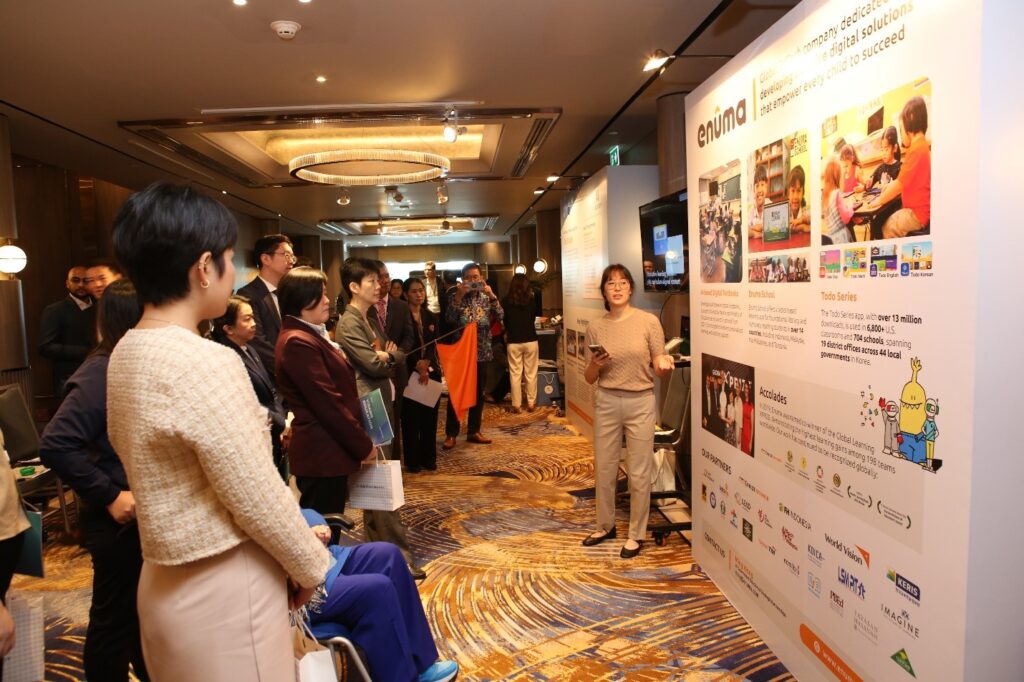
The day concluded with a networking dinner, offering an opportunity for delegates to foster regional connections and partnerships.
Day 3: Side Events and Future Directions
The final day, 28 November, focused on innovation and collaboration. The programme began with the launch of the Rapid Scoping Study Report on Out-of-School Children and Youth in Southeast Asia. The event included keynote messages, collaborative presentations, and the ceremonial unveiling of the report, aimed at addressing educational inequities across the region.
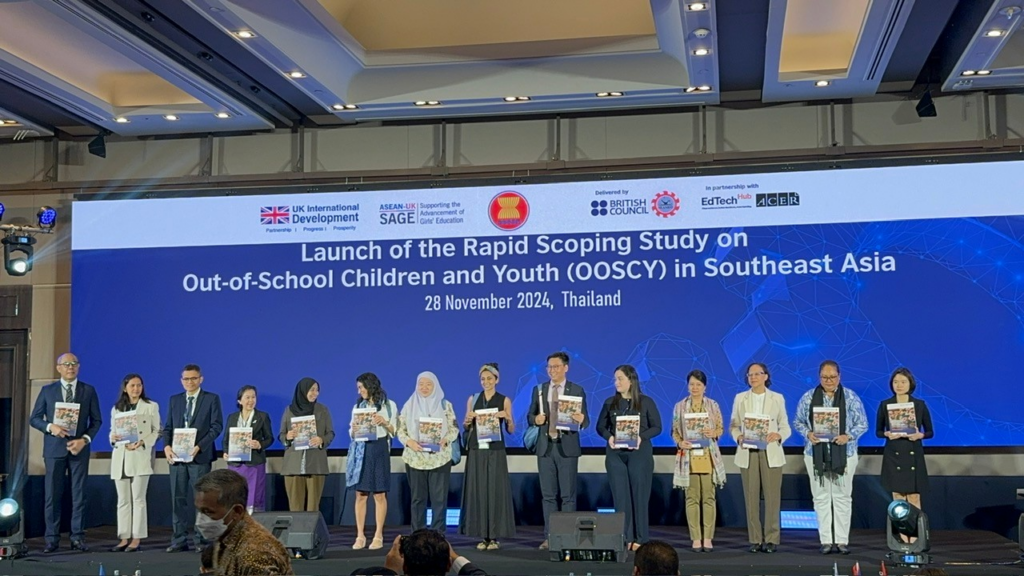
Dynamic discussions ensued, including a panel on artificial intelligence and education, led by TeachAI and MIT. These sessions reflected SEAMEO’s commitment to harnessing technology to improve learning outcomes. The event concluded with closing remarks by the SEAMEO Secretariat Director and the session chair, summarising the key achievements and future commitments.
Legacy of the 47th HOM
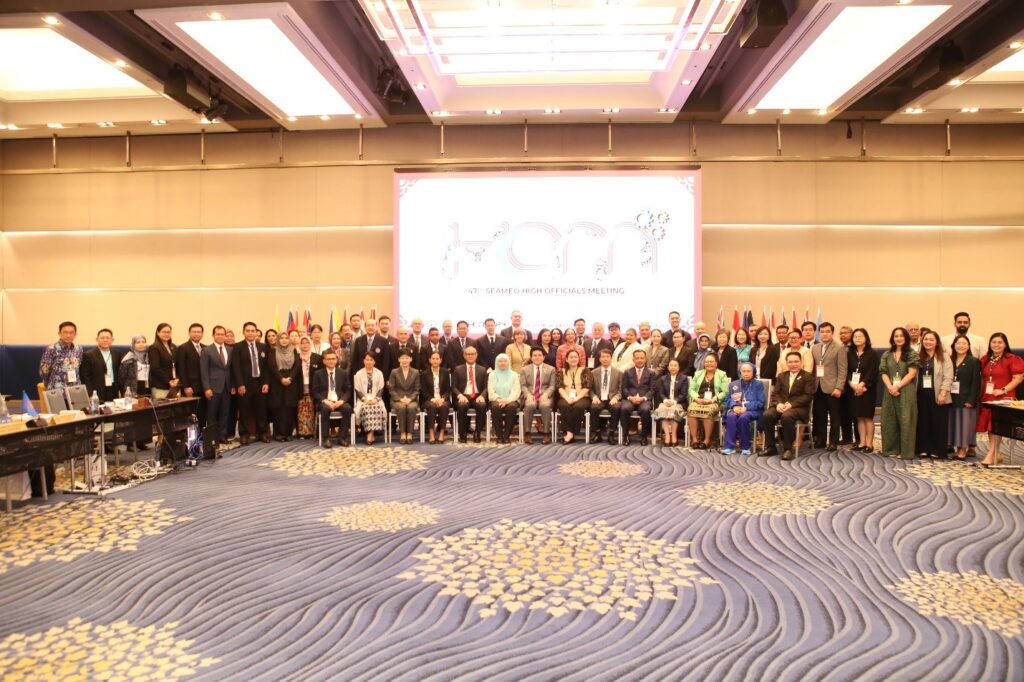
The 47th SEAMEO HOM reaffirmed the organisation’s dedication to fostering inclusive, innovative, and sustainable educational development in Southeast Asia. By bringing together a diverse array of stakeholders, the meeting paved the way for strengthened regional cooperation and transformative educational initiatives.
